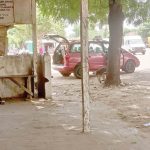The YIAGA-Africa Whatching The Vote (WTV) has said this year’s general election was not what Nigerians bargained for as it fell below their expectations.
This is contained in the preliminary statement of the conduct of the Saturday’s Presidential and National Assembly elections and jointly signed by the Board of the WTV including the Chairman, Dr. Hussaini Abdu and Executive Director, YIAGA-Africa, Samson Itodo, on Sunday in Abuja.
According to the report, the 23 February presidential election was characterized by many of the same shortcomings that have marred previous national elections in Nigeria.
It said that as in past elections, INEC’s logistical challenges resulted in late opening in 59 percent of polling units that, together with instances of misconduct by political parties in some polling units, compromised the ability of some citizens to vote and undermined public confidence in the process.
It however, said these issues do not necessarily undermine the overall credibility of the process, but that Nigeria missed an opportunity to improve the quality of its elections.
“These were not the elections Nigerians wanted; they were not the elections Nigerians expected; and, most importantly, they were not the elections Nigerians deserved.
“Our election commission must improve its capacity to deliver credible elections and our political parties must play according to the rules. Failure to do so could fundamentally threaten our democracy,” said Chairman of the WTV Working Group Dr. Hussaini Abdu.
He lamented that despite the one week delay, INEC continued to experience significant logistical challenges on 23 February Election Day, resulting in late opening of polling units.
“YIAGA AFRICA’s Watching the Vote findings showed that polling units opened late throughout the country with only 41 percent of polling units open as at 10:30am and with polling units in the South South and South East opening later than polling units in other geopolitical zones.
“YIAGA AFRICA is concerned by tally sheet data gathered from its observers, indicating that nearly half of voters may have voted with the Smart Card Reader authenticating only their Permanent Voters Card and not their fingerprints,” he added.

 Join Daily Trust WhatsApp Community For Quick Access To News and Happenings Around You.
Join Daily Trust WhatsApp Community For Quick Access To News and Happenings Around You.


